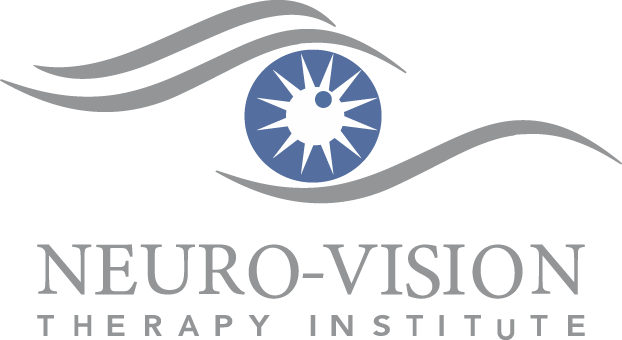The Neuro-Vision Therapy Institute has a uniquely comprehensive approach to uncover even the most subtle vision issues that trigger symptoms, and it all begins with a Neuro Vision Evaluation (NVE). The process begins with a thorough vision questionnaire and vision symptom survey.
From there, your doctor reviews prior records, discusses, and analyzes patient history. This preparatory work and any subsequent research is what allows your doctor to create an NVE that is customized to a patient’s unique symptoms and circumstances.
Vision Tests Explained
The NVE is a two-hour comprehensive series of over 30 quantitative vision tests performed directly with our doctors to assess the brain-eye connection fully. The main areas of testing include:
- Binocular vision function
- Vision-vestibular and balance
- Visual memory
- Visual fields and peripheral awareness
- Visual processing skills
One of the most important functions of the NVE is to assess the patient’s binocular vision function. Binocularity, or how the eyes work together, is one the most critical factors of functional vision. If a patient is struggling to coordinate their eyes together properly, they may suffer from numerous symptoms or depth perception issues.
The Binocular Vision Test
The binocular vision testing in our NVE also includes assessment of the patient’s ability to track, focus, perceive depth, and team their eyes appropriately at different distances. After the NVE, our doctors may also update glasses or contact lens prescriptions in consideration of functional vision testing.
Another significant part of the NVE is the assessment of visual information processing and visual perceptual skills. Once the brain is exposed to visual information, how we make sense of that information is critical for proper functioning. Visual information processing skills can impact how efficiently we perform in school and at work. Just a few of the visual perceptual skills we test can include: visual closure, visualization, figure-ground, visual form recognition, visual-motor integration, visual spatial relationships.
After the Neuro-Vision Evaluation, our doctors will create a full report of findings and review results in a meeting with patients and parents, typically one week after the NVE. This meeting is an opportunity for patients to learn all about their vision, discover the treatment approach, and address any questions. Our doctors greatly enjoy these meetings as they are opportunities for individuals to discover more about themselves through their visual abilities.

